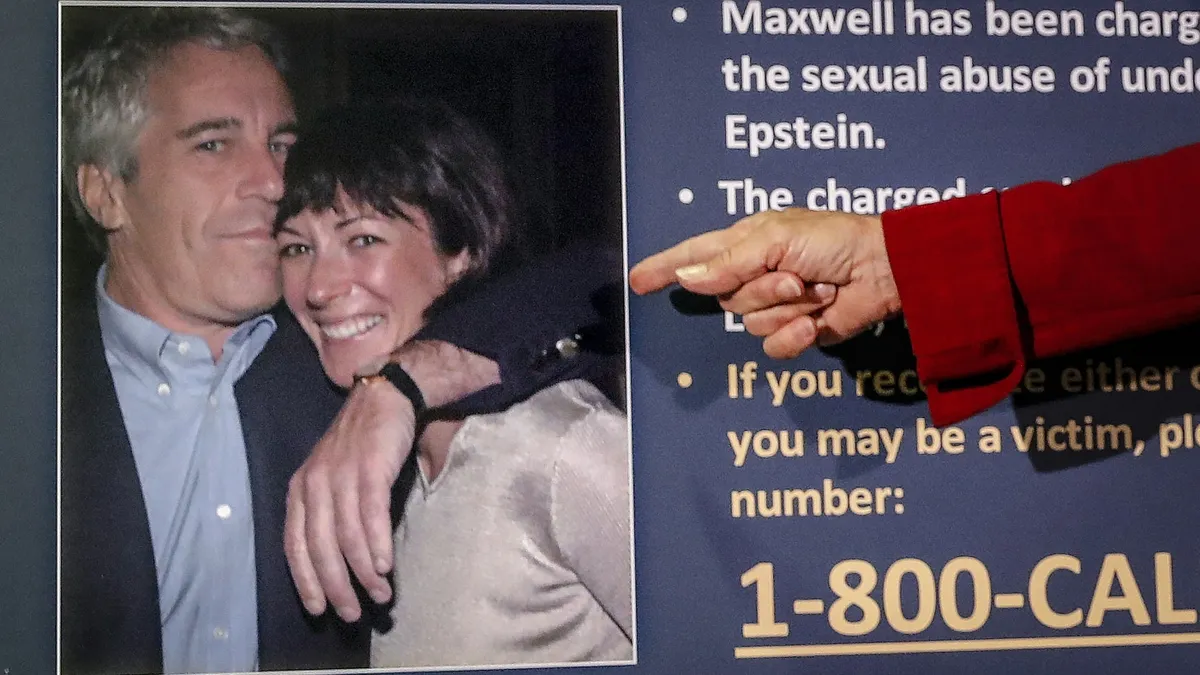
On Friday, the Justice Department made a significant announcement by releasing what it claims to be the complete transcript and audio recording of Deputy Attorney General Todd Blanche's conversations with Ghislaine Maxwell during her interviews last month. Maxwell, known for her long-term association with convicted sex offender Jeffrey Epstein, was sentenced to a 20-year prison term for her role in facilitating Epstein's abuse of underage girls.
Blanche's meeting with Maxwell took place in Tallahassee, Florida, over two days in late July. The transcripts released are extensive, spanning more than 300 pages, and include several sections marked as redacted. In an effort to promote transparency, Blanche shared these documents via social media.
In response to the release of the transcripts, Maxwell's attorney, David Markus, stated that his client told the truth during the interview and claimed she is being used as a scapegoat. Markus emphasized that Maxwell answered every question posed to her without evasion, supporting her statements with various documents and objective evidence. He praised her demeanor and credibility, stating, “Her demeanor and credibility are clear for anyone to hear.” Despite spending five difficult years in custody, including time in what Markus described as "the worst imaginable conditions," Maxwell maintained her position throughout the discussions.
The release of these transcripts comes at a time when the Trump administration is facing mounting pressure from both Democrats and some members of the GOP to provide more information regarding any files related to Epstein and his case. This scrutiny raises questions about the administration's transparency and its handling of sensitive information.
During the interview, Maxwell was questioned about a variety of public figures, including President Trump. Although Trump and Epstein were part of the same social circle in Palm Beach, Trump has consistently asserted that his friendship with Epstein ended prior to Epstein's indictment for soliciting prostitution in 2006. Maxwell claimed she may have met Trump in 1990, noting that he was friendly with her father. She described Trump as "very cordial and very kind," asserting that she never observed him in any inappropriate situations. "I actually never saw the President in any type of massage setting. I never witnessed the President in any inappropriate setting in any way," she stated. Maxwell further commented on Trump's relationship with Epstein, suggesting that she did not believe they were particularly close friends, noting, "I don't recall ever seeing him in his house, for instance."
The meeting between Blanche and Maxwell is notable due to the high-ranking officials involved. Alongside Blanche were Diego Pestana, the acting associate deputy attorney general; Spencer Horn, an FBI special agent; and Mark Beard, deputy U.S. Marshal. The involvement of such senior figures indicates the seriousness and complexity of the discussions.
Maxwell and her legal team appear to be positioning themselves for potential clemency. As President, Trump has exercised his authority to commute sentences and grant pardons, often to individuals who have previously supported him. This context raises questions about the implications of Maxwell's statements and the possible outcomes of her legal challenges.